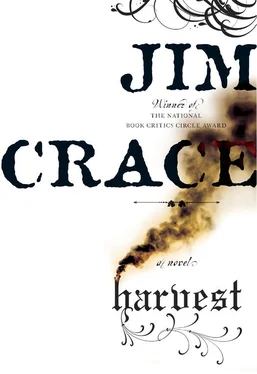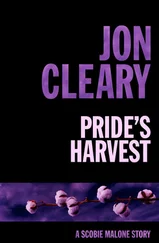Happy the man, whose wish and care
A few paternal acres bound,
Content to breathe his native air
In his own ground.
— ALEXANDER POPE, “ODE ON SOLITUDE”
 WO TWISTS OF SMOKE AT a time of year too warm for cottage fires surprise us at first light, or they at least surprise those of us who’ve not been up to mischief in the dark. Our land is topped and tailed with flames. Beyond the frontier ditches of our fields and in the shelter of our woods, on common ground, where yesterday there wasn’t anyone who could give rise to smoke, some newcomers, by the luster of an obliging reapers’ moon, have put up their hut — four rough and ready walls, a bit of roof — and lit the more outlying of these fires. Their fire is damp. They will have thrown on wet greenery in order to procure the blackest plume, and thereby not be missed by us. It rises in a column that hardly bends or thins until it clears the canopies. It says, New neighbors have arrived; they’ve built a place; they’ve laid a hearth; they know the custom and the law. This first smoke has given them the right to stay. We’ll see.
WO TWISTS OF SMOKE AT a time of year too warm for cottage fires surprise us at first light, or they at least surprise those of us who’ve not been up to mischief in the dark. Our land is topped and tailed with flames. Beyond the frontier ditches of our fields and in the shelter of our woods, on common ground, where yesterday there wasn’t anyone who could give rise to smoke, some newcomers, by the luster of an obliging reapers’ moon, have put up their hut — four rough and ready walls, a bit of roof — and lit the more outlying of these fires. Their fire is damp. They will have thrown on wet greenery in order to procure the blackest plume, and thereby not be missed by us. It rises in a column that hardly bends or thins until it clears the canopies. It says, New neighbors have arrived; they’ve built a place; they’ve laid a hearth; they know the custom and the law. This first smoke has given them the right to stay. We’ll see.
But it is the second twist of gray that calls us close, that has us rushing early from our homes on this rest day toward Master Kent’s house. From a distance this smoke is pale. No one has added greenery to darken it. But the blaze itself is less faint-hearted. It is rackety. It is a timber fire, for sure. But ancient wood. Long-felled. The years are in its smell. We fear it is the manor house that burns and that we will be blamed for sleeping through. We’d best prepare excuses now. So, if we heard the cracking of its rafters and its beams in our slumbers this morning, we must have mistaken it for the usual busying of trees and wind, or for the toiling of dreams, or for the groaning of our bones. Yesterday was harvest end, the final sheaf. We were expecting to sleep long and late this morning, with heavy shoulders naturally but with buoyant hearts. Our happiness has deafened us, we’ll say. It was only when we heard Willowjack, the master’s fancy sorrel mare, protesting at the smoke with such alarm, that we awoke and went to help, as help we must, for no one wants to lose the manor house.
Now that we have reached our master’s paddocks and his garths, we can smell and taste the straw. The smoke and flames are coming not from his home but from his hay lofts and his stable roofs. His pretty, painted dovecote has already gone. We expect to spot his home-birds’ snowy wings against the smoke-gray sky. But there are none.
I know at once whom we should blame. When Christopher and Thomas Derby, our only twins, and Brooker Higgs came back from wooding last evening, they seemed a little too well satisfied, but they weren’t bringing with them any fowl or rabbit for the pot, or even any fuel. Their only spoils, so far as I could tell, were a bulky, almost weightless sack and immodest fits of laughter. They’d been mushrooming. And by the looks of them they had already eaten raw some of the fairy caps they’d found. I did the same myself in my first summer of settlement here, a dozen or so years ago, when I was greener and less timid, though not young. I remember eating them. They are beyond forgetting. Just as yesterday, the last sheaf of that year’s harvest had been cut and stood. And, just as today, we’d faced a break from labor, which meant that I could sleep my mischief off. So in the company of John Carr, my new neighbor then, my neighbor still, I went off that afternoon to Thank the Lord for His Munificence by hunting fairy caps in these same woods. I’ll not forget the dancing lights, the rippling and the merriment, the halos and the melting trails that followed anything that moved, the enormous fearlessness I felt, the lasting fear (yes, even now), or how darkly blue the moon became that night, and then how red. I wish I’d had the courage since to try to find that moon again.
Last evening, when the twins and Brooker Higgs jaunted past our cottages and waved at us with gill stains on their fingertips, I asked these merry men, “Had any luck?” They bared their sack of spoils at once, because they were too foxed and stupefied to conceal them, even though they understood my ancient closeness to the manor house. I pulled aside the dampening of leaves and inspected their few remaining fairy caps, saved for later revels, I suppose, plus a good number of golden shawls, which, stewed in milk and placed inside a dead man’s mouth, are meant to taste so good they’ll jolt him back to life. Accounting for the bulk of their sack was a giant moonball, its soft, kid-leather skin already smoking spores, and far too yellowy and dry to cook. Why had they picked it, then? Why hadn’t they just given it a satisfying kick? What kind of wayward lads were these?
Here’s what took place. This is my reckoning, calculated without recourse to any constable or magistrate — and just as well, because this place is too far off from towns to number such judicious creatures among our livestock; we are too small, and getting smaller. Our final day of harvesting was not as joyful as it ought to have been, and not only because the crop proved so frugal in the ear. A gentleman we did not recognize was watching us reduce our barley field to stub; a visitor, a rare event, exciting and unnerving. We mowed with scythes; he worked with brushes and with quills. He was recording us, he said, or more exactly marking down our land, at Master Kent’s request. He tipped his drawing board for anyone that asked and let them see the scratchings on his chart, the geometrics that he said were fields and woods, the squares that stood for cottages, the ponds, the lanes, the foresting.
He was a pleasant man, I’d say. No more than thirty years of age and dressed much like the master, not for labor but for the open air, in sturdy boots, breeches, a jerkin, and a plain cap without feather, brooch or badge. His beard was shaped and honed to a point with wax. I have a narrow trowel that matches it. A townsman’s beard. A wealthy beard. And he was lopsided when he moved, with a stiff arm and shoulder on his left. His was a body not well suited to the balks and bumpy edges of a field. He was a stumbler. And there was, I thought, a trace of past illness in his expression as well as in his step. But I’ve never seen a man more ready with a smile. We could not help but stare at him and wonder, without saying so, if those scratchings on his board might scratch us too, in some unwelcome way.
Still, there was essential work to finish yesterday, whatever our distractions. If we hoped for sufficient grain to last the year, we’d have to deserve it with some sweat. This summer’s yield was not yet good enough. Plenty, here, has wed itself to Leanness. At the lower, shaded limits by the dell and on the more neglected stony slopes our plants have proven miserly. They grew as short, askew and weakly as our limping visitor and so were hardly worth the reaping. But the higher field, which we left standing till the last, has always looked more sprightly — and more promising. Since spring we’ve waited with our fingers crossed as our better barley steadily renounced its green and let itself go tawny. From the lane, looking down toward the tracery of willows on the brook, the top end of our barley meadow, bristling and shivering on the breeze, showed us at last its ochers and its cadmiums, its ambers and its chromes. And the smells, which for so long in this slow summer were faint and damp, became nutlike and sugary. They promised winter ales and porridges. The awns and whiskers of the barley’s ears were brittle and dry enough to chit-chat-chit every time they were disturbed, nattering with ten thousand voices at every effort of the wind or every scarper of a rabbit, mouse or bird. They said, “We’ve had enough. Our heads are baked and heavy now. We’re dry. Bring out your blades and do your worst.”
Читать дальше

 WO TWISTS OF SMOKE AT a time of year too warm for cottage fires surprise us at first light, or they at least surprise those of us who’ve not been up to mischief in the dark. Our land is topped and tailed with flames. Beyond the frontier ditches of our fields and in the shelter of our woods, on common ground, where yesterday there wasn’t anyone who could give rise to smoke, some newcomers, by the luster of an obliging reapers’ moon, have put up their hut — four rough and ready walls, a bit of roof — and lit the more outlying of these fires. Their fire is damp. They will have thrown on wet greenery in order to procure the blackest plume, and thereby not be missed by us. It rises in a column that hardly bends or thins until it clears the canopies. It says, New neighbors have arrived; they’ve built a place; they’ve laid a hearth; they know the custom and the law. This first smoke has given them the right to stay. We’ll see.
WO TWISTS OF SMOKE AT a time of year too warm for cottage fires surprise us at first light, or they at least surprise those of us who’ve not been up to mischief in the dark. Our land is topped and tailed with flames. Beyond the frontier ditches of our fields and in the shelter of our woods, on common ground, where yesterday there wasn’t anyone who could give rise to smoke, some newcomers, by the luster of an obliging reapers’ moon, have put up their hut — four rough and ready walls, a bit of roof — and lit the more outlying of these fires. Their fire is damp. They will have thrown on wet greenery in order to procure the blackest plume, and thereby not be missed by us. It rises in a column that hardly bends or thins until it clears the canopies. It says, New neighbors have arrived; they’ve built a place; they’ve laid a hearth; they know the custom and the law. This first smoke has given them the right to stay. We’ll see.










